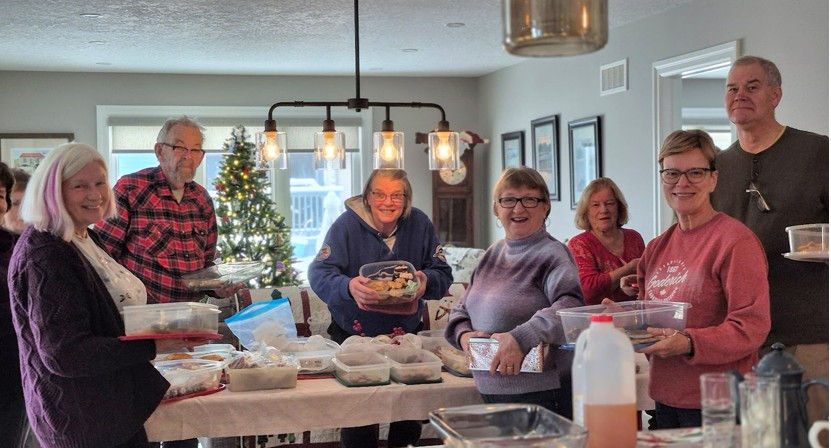Monthly mindfulness walks on Maitland Trail invite participants to slow down and breathe
- Alex Hunt
- Sep 18, 2025
- 3 min read

Walking in silence along the Maitland Trail may sound simple, but for participants in Tanya McIntosh’s mindfulness walks, the experience is both challenging and deeply rewarding.
On the last Saturday of every month, Tanya MacIntyre, founder of Red Roof Recovery and SMART facilitator invites the community to join her on a forest therapy mindfulness walk from 11 a.m. to 12 a.m.
Walkers will learn to practice their breathing and use their senses to take in the forest environment which encourages the mind to stay in the present moment.
“We do a slow walk to the river which is twenty minutes, and we get to look out and talk about the experience, it's very difficult for people to walk together and not talk,” said MacIntyre.
“It’s challenging but it’s very rewarding because it forces us to be present and focus on our breath, which is what we don’t have time for, so taking 20 minutes of your day on a regular basis will bring a new level of serenity to life that we need.”
MacIntyre said that each mindfulness walk begins with short, guided meditations. She noted the practice is designed with modern attention spans in mind, which studies show that only last an average of eight seconds.
MacIntyre introduces participants to mindfulness as the practice of staying present, observing thoughts without judgment, and letting them drift away ‘like clouds in the sky or leaves in a stream’.
As she works as SMART (Self-Management and Recovery Training) facilitator, MacIntyre also works as a free agent through her Red Roof Recovery program in Goderich. The program allows one client at a time to stay with MacIntyre for a week.
Clients have full access to their own apartment unit which includes a bathroom, kitchen and bedroom. The program is geared to individuals who are willing to recover through a combination of behavioral and recovery therapies, whether it be from addiction or mental health challenges.
“The program is intensive and exhausting. People say it’s expensive but what’s your addiction costing you, they must be willing to make the investment with themselves,” said MacIntyre.
“What we practice grows stronger and we practice certain things that we resonate with. People must keep educating themselves and continue to search for what works for them. You fail fast and keep looking.”
MacIntyre said that many recovery facilities follow a one-size-fits-all model, where participants live and work together on the same grounds, instead of addressing root causes. She adds that programs often extend treatment times without long-term results.
“People just keep coming back,” she said, noting she knows individuals who have gone through treatment three times in a single year.
“It’s costing taxpayers tens of millions of dollars.
“Recovery is about applying consistent efforts to help yourself and being admitted into these facilities where people are in group settings does not work, it is a broken system, we must fix it. There’s too much bureaucracy.”
MacIntyre started Red Roof Recovery in 2020 during the pandemic with a focus on individualized treatment as opposed to ground setting used in mental health and addiction recovery treatment centres and says that her clients end with a 100 per cent success rate.
“I hope to revolutionize the recovery industry because what we’re doing is not working. It’s just mired in so much bureaucracy and it’s a mess,” said MacIntyre.
“I’m a free agent, I’m not affiliated with any businesses, and I give out a six-page informed consent document to clients and encourage them to take it to a lawyer, the paper is for my protection. Clients must be willing to do the work and if you don’t do the work, you’re not going to have success.”




Comments